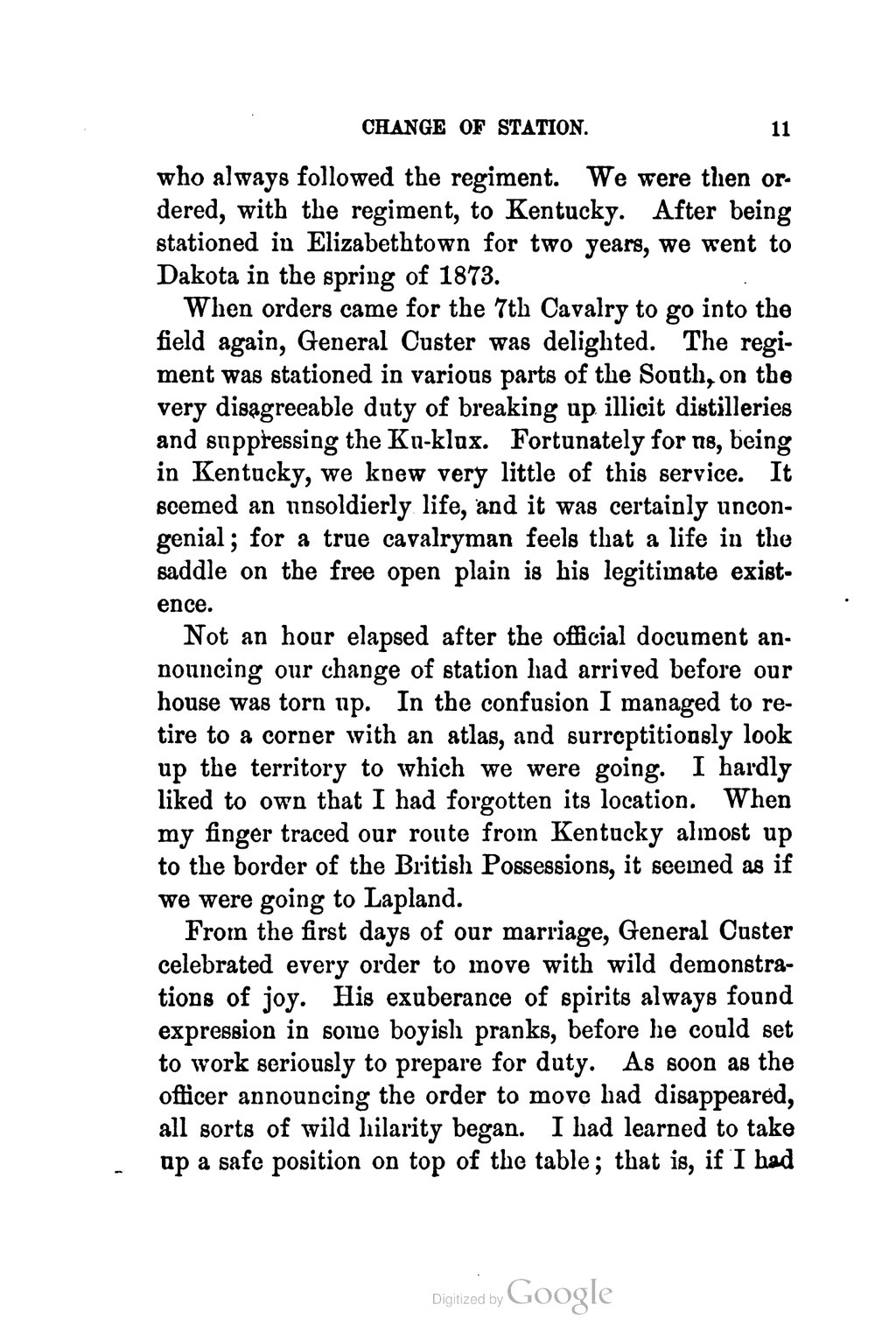who always followed the regiment. We were then ordered, with the regiment, to Kentucky. After being stationed in Elizabethtown for two years, we went to Dakota in the spring of 1873.
When orders came for the 7th Cavalry to go into the field again, General Custer was delighted. The regiment was stationed in various parts of the South, on the very disagreeable duty of breaking up illicit distilleries and suppressing the Ku-klux. Fortunately for us, being in Kentucky, we knew very little of this service. It seemed an unsoldierly life, and it was certainly uncongenial; for a true cavalryman feels that a life in the saddle on the free open plain is his legitimate existence.
Not an hour elapsed after the official document announcing our change of station had arrived before our house was torn up. In the confusion I managed to retire to a corner with an atlas, and surreptitiously look up the territory to which we were going. I hardly liked to own that I had forgotten its location. When my finger traced our route from Kentucky almost up to the border of the British Possessions, it seemed as if we were going to Lapland.
From the first days of our marriage, General Custer celebrated every order to move with wild demonstrations of joy. His exuberance of spirits always found expression in some boyish pranks, before he could set to work seriously to prepare for duty. As soon as the officer announcing the order to move had disappeared, all sorts of wild hilarity began. I had learned to take up a safe position on top of the table; that is, if I had

